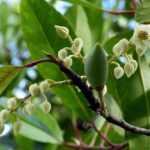Rosa multiflora Thunb, or rose multiflora, has recently gained popularity among women for its miraculous skin-nourishing properties. But what is this plant, and what are its benefits for beauty and wellness?
1 What is Rosa Multiflora?
Characteristics of Rosa Multiflora
Rosa multiflora, also known as wild rose, Rosa multiflora Thunb, or rose multiflora, is a climbing shrub belonging to the Rosaceae family. Native to Asia, Europe, Northwest Africa, and Western Asia, it was introduced to Vietnam from China.
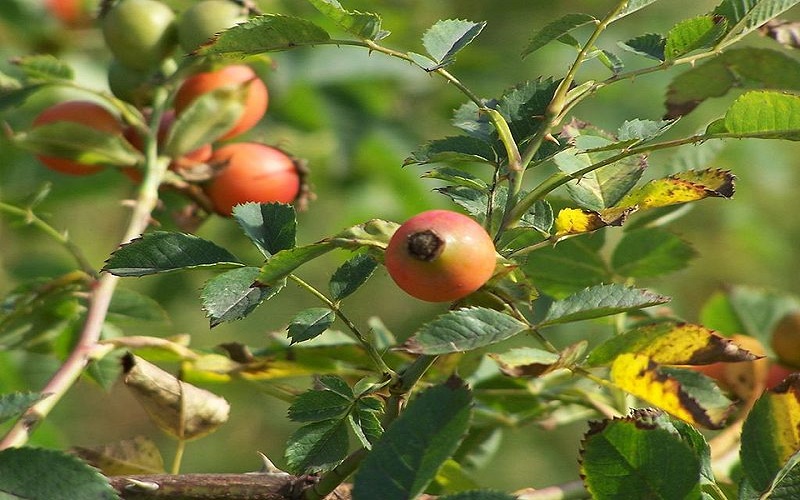 Rosa multiflora
Rosa multiflora
Rosa multiflora typically grows as a vine, with a slender stem that forms bushes or clings to surfaces using its sharp thorns. It reaches an average height of 1 to 5 meters, featuring pinnately compound leaves with 5 to 7 small leaflets.
The plant blooms in spring, bearing flowers with five petals that range in color from light pink to dark pink and eventually turn white. Its fruits are bright red or orange, sometimes deep purple to black, and measure about 1.5 to 2 cm.
Chemical Composition of Rosa Multiflora
Various parts of the Rosa multiflora plant, including the stem, roots, leaves, young shoots, and fruits, are used in traditional medicine as a popular remedy for various ailments and skin care.
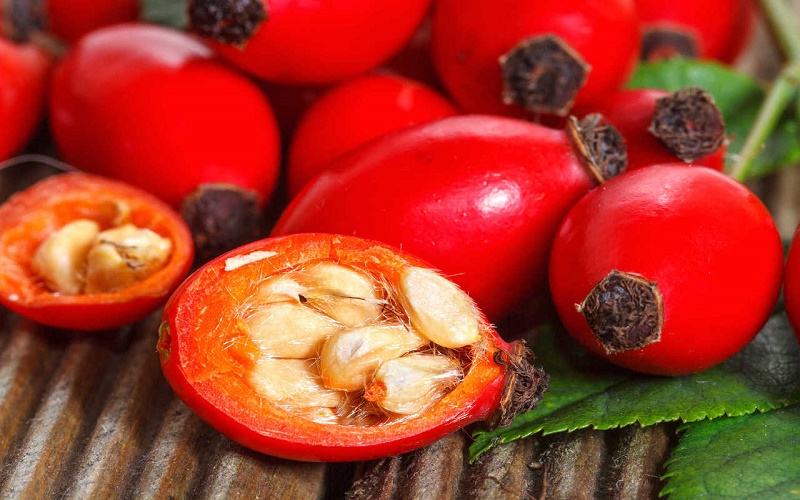 Chemical Composition of Rosa Multiflora
Chemical Composition of Rosa Multiflora
The fruits of Rosa multiflora are particularly rich in essential vitamins, including vitamin C, vitamin E, and beta-carotene, all of which are vital for human health.
Additionally, the plant contains powerful phytochemicals, especially in its roots, such as triterpenoid acid, sitosterol, and cachoa extract, which offer health benefits and help prevent cancer.
2 Health Benefits of Rosa Multiflora Fruits
Cancer Prevention and Management of Chronic Diseases
Research on extracts from Rosa multiflora fruits has revealed the presence of compounds that inhibit the growth and spread of cancer cells, thereby preventing metastasis.
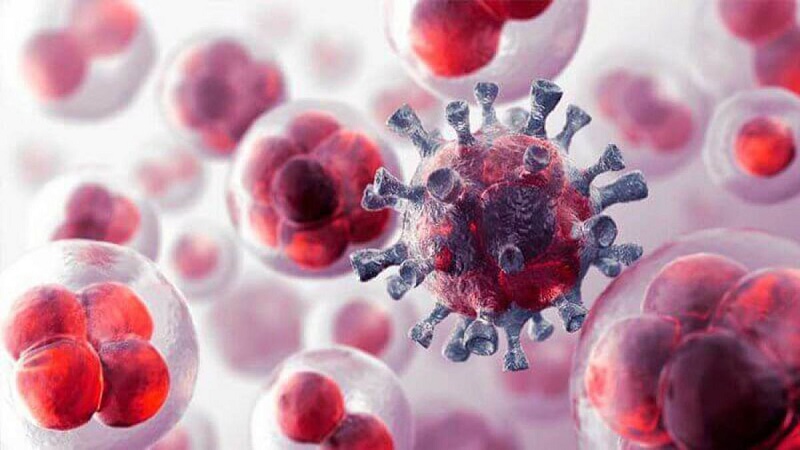 Cancer Prevention and Chronic Disease Management
Cancer Prevention and Chronic Disease Management
The fruits are also packed with vitamins, phenols, flavonoids, pectin, quercetin, and other compounds that possess antioxidant properties. These nutrients slow down the aging process, boost overall health, and help prevent cancer and chronic illnesses. Similarly, the roots of Rosa multiflora, mentioned earlier, offer comparable benefits.
Anti-Aging and Immune System Support
The exceptionally high levels of vitamin C and minerals in Rosa multiflora fruits help reduce and prevent skin aging, promoting rejuvenation and a youthful appearance. Notably, the vitamin C content in these fruits is 60 times higher than that of lemons.
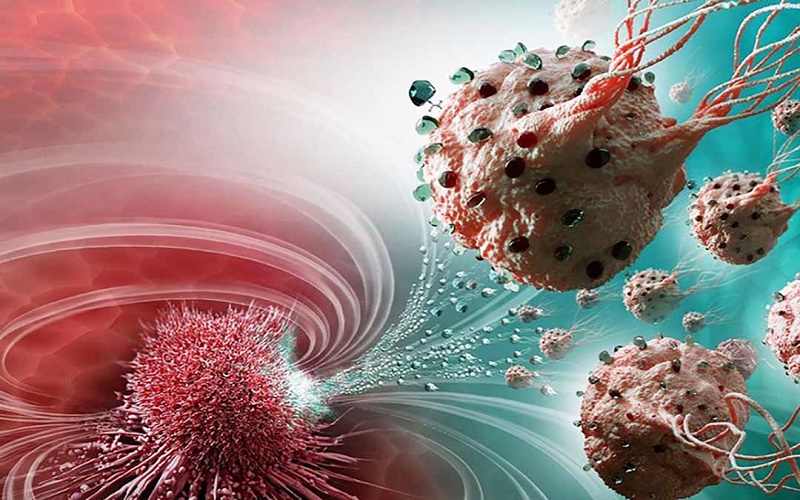 Anti-Aging and Immune Boosting
Anti-Aging and Immune Boosting
This abundant vitamin C improves immune function, stimulates collagen production, supports blood vessel health, fights inflammation, and enhances absorption of iron, thereby preventing anemia. Additionally, it helps ward off scurvy, a condition that can lead to muscle weakness, joint pain, rashes, and tooth loss.
Blood Sugar Control
Animal studies using Rosa multiflora fruit powder have indicated its potential to regulate blood sugar levels, aiding in the management of diabetes.
 Blood Sugar Control
Blood Sugar Control
In these experiments, rats fed with the fruit powder exhibited improved glucose absorption compared to those not receiving the treatment.
Furthermore, some studies suggest that Rosa multiflora may help prevent type 2 diabetes in high-risk individuals, such as those who are overweight or have high blood pressure.
Effective Treatment for Arthritis
According to a 2005 study published in the Scandinavian Journal of Rheumatology, consuming 5 grams of Rosa multiflora fruit per day provides better relief from joint pain compared to placebo treatments.
 Arthritis Treatment
Arthritis Treatment
However, a 2010 study found that the fruit’s effectiveness in treating and improving joint conditions was relatively low and temporary, a conclusion supported by subsequent research.
Cardiovascular Benefits
A small study published in the European Journal of Clinical Nutrition involved 31 volunteers with a BMI greater than 30 who incorporated 40 grams of Rosa multiflora fruit powder into their diet for six weeks.
 Cardiovascular Benefits
Cardiovascular Benefits
The results showed a significant reduction in blood pressure among the participants, indicating that daily consumption of 40 grams of Rosa multiflora fruit powder for six weeks can lower cardiovascular risks in obese and overweight individuals.
Additionally, the fruits contain flavonoids and other antioxidants that contribute to maintaining heart health and reducing the risk of cardiovascular diseases.
Improved Blood Circulation
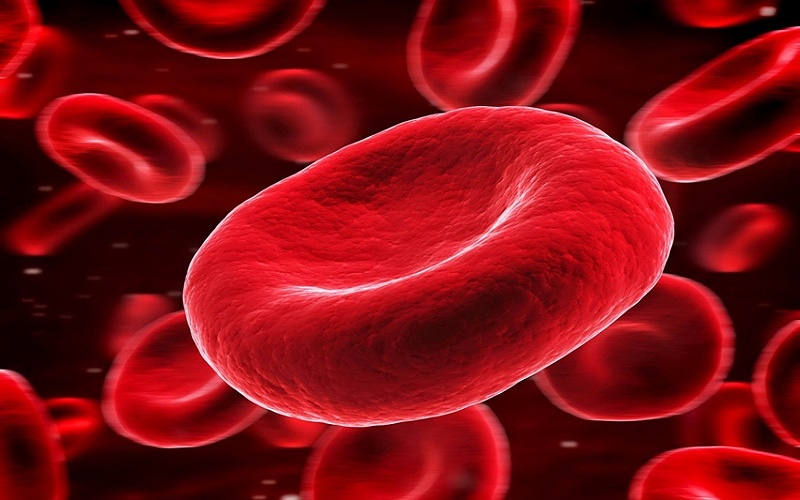 Improved Blood Circulation
Improved Blood Circulation
In traditional medicine, Rosa multiflora tea is used to enhance blood circulation and treat conditions like nosebleeds, wounds, and vomiting of blood.
Skin Health
The vitamins C and A present in Rosa multiflora fruits promote healthy skin, boost collagen production, reduce wrinkles, and brighten the complexion.
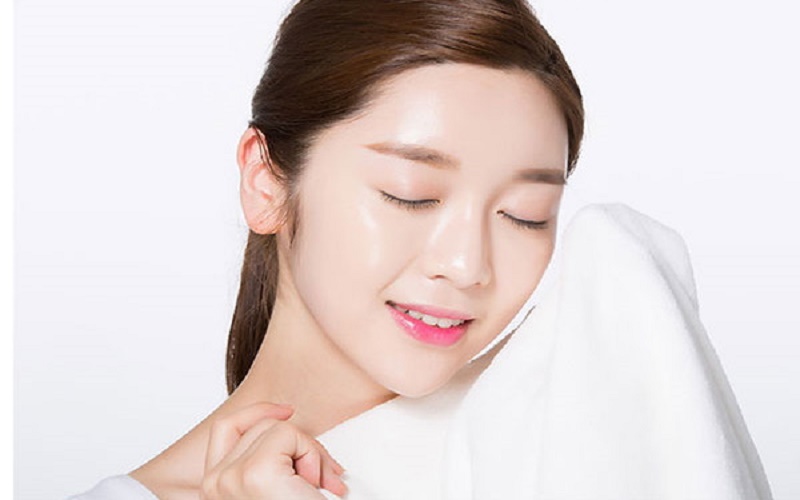 Skin Health
Skin Health
Additionally, the antioxidants in Rosa multiflora essential oil protect against UV damage, remove age spots, and fade dark marks.
A study from Thailand supports these findings, concluding that the essential oil derived from Rosa multiflora fruits improves skin aging. This explains why Rosa multiflora oil is a favored ingredient in many skincare products.
Digestive Support
Rosa multiflora fruits have long been valued as a digestive remedy. A report from the University of Michigan highlights the fruit’s ability to alleviate stomach pain and other digestive issues.
 Digestive Support
Digestive Support
Additionally, a review by the University of Zaragoza in Spain in 2007 indicated that Rosa multiflora could reduce intestinal contractions, making it useful in treating diarrhea.
This benefit is attributed to the fruit’s ability to balance the levels of Helicobacter pylori bacteria in the stomach, a common cause of gastric ulcers.
Reduced Inflammation
According to several studies from Denmark, the compounds in Rosa multiflora fruits help lower the levels of C-reactive protein in the body, a marker of inflammation.
 Reduced Inflammation
Reduced Inflammation
This anti-inflammatory effect is also relevant to joint health, as previously mentioned.
Furthermore, a report suggests that the anti-inflammatory properties may originate from the seeds rather than the fruit’s pulp, and they also help prevent cartilage degradation.
Renal Health
The National Library of Medicine in the United States has reported on the use of Rosa multiflora in treating renal dysfunction and related disorders.
 Renal Health
Renal Health
However, it is important to note that the high vitamin C content in Rosa multiflora can also lead to kidney stone formation, so caution and medical advice are necessary.
Blood Pressure Regulation
 Blood Pressure Regulation
Blood Pressure Regulation
According to a report by the United States Department of Agriculture, Rosa multiflora fruits can significantly lower blood pressure. However, if you have blood pressure concerns, it is essential to seek medical guidance before consuming Rosa multiflora.
3 Potential Side Effects of Rosa Multiflora
Despite its numerous health and beauty benefits, Rosa multiflora may have some undesirable effects for certain individuals.
 Rosa multiflora may not be safe for pregnant and breastfeeding women.
Rosa multiflora may not be safe for pregnant and breastfeeding women.
Firstly, Rosa multiflora has not been proven safe for pregnant and breastfeeding women, so it is advisable to consult a healthcare professional to ensure that the plant’s constituents do not adversely affect the quality of breast milk or the health of the fetus.
If you experience allergic reactions such as hives, skin itching, restlessness, difficulty breathing, nausea, or chest discomfort after consuming Rosa multiflora or related products, discontinue use immediately. Additionally, the high vitamin C content in Rosa multiflora may interfere with certain medications, reducing their effectiveness.
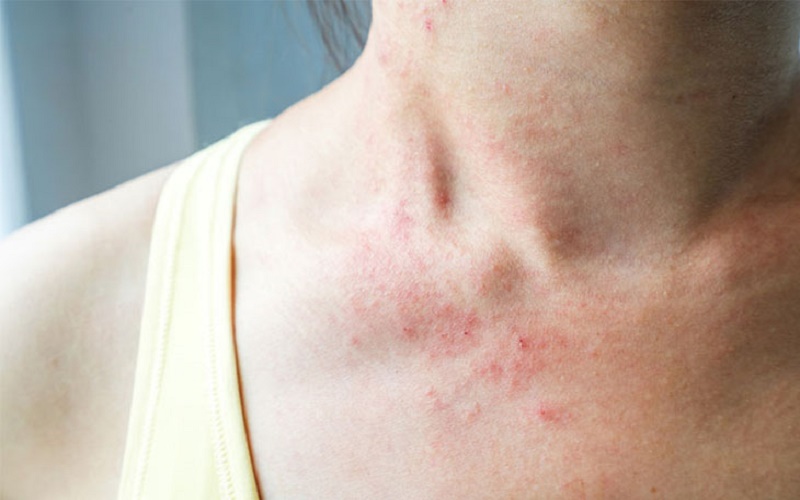 Discontinue use if allergic reactions occur.
Discontinue use if allergic reactions occur.
In summary, if you are undergoing treatment for any health condition, are pregnant, or are breastfeeding, it is advisable to consult a physician before using Rosa multiflora or its products to avoid any adverse effects.
4 Where to Buy Rosa Multiflora and Price Range
You can currently find dried Rosa multiflora fruits at traditional Chinese medicine shops, or you can opt for other Rosa multiflora products like its essential oil or tea.
Rosa multiflora tea is available at large supermarkets, herbal shops, and online marketplaces. The price of the tea currently ranges from 120,000 to 150,000 VND per 100 grams.
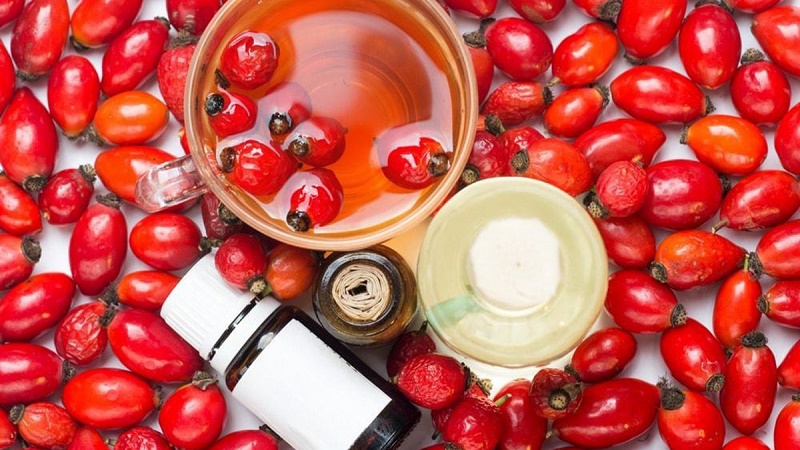 Dried Rosa multiflora fruits are available at traditional Chinese medicine shops.
Dried Rosa multiflora fruits are available at traditional Chinese medicine shops.
However, it is recommended to seek medical advice before using Rosa multiflora for therapeutic purposes.
In conclusion, Rosa multiflora,





























